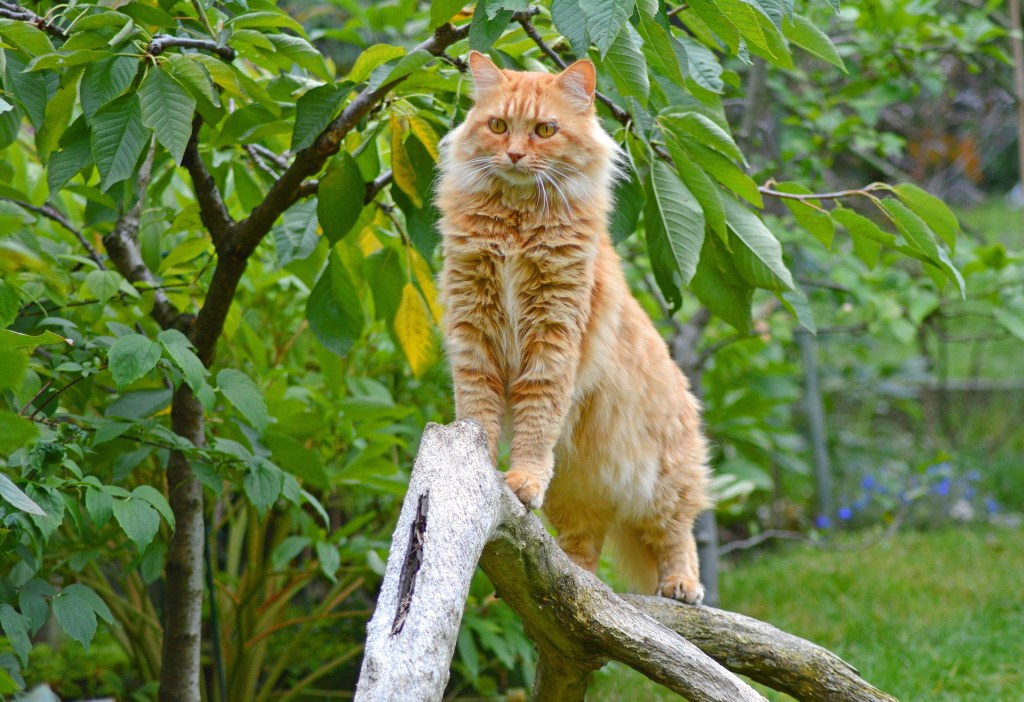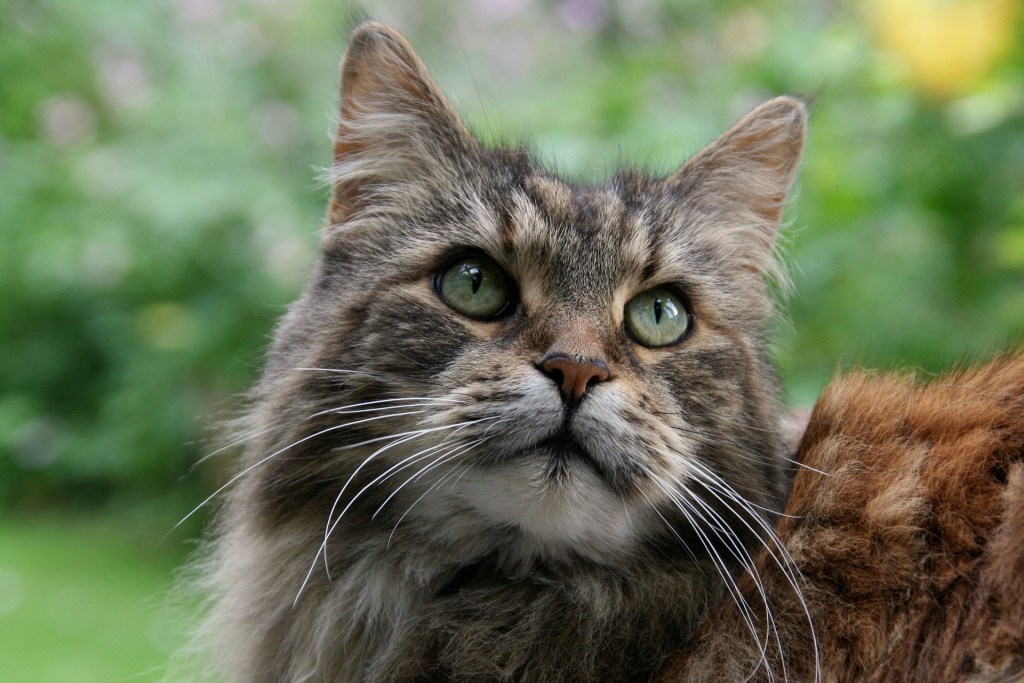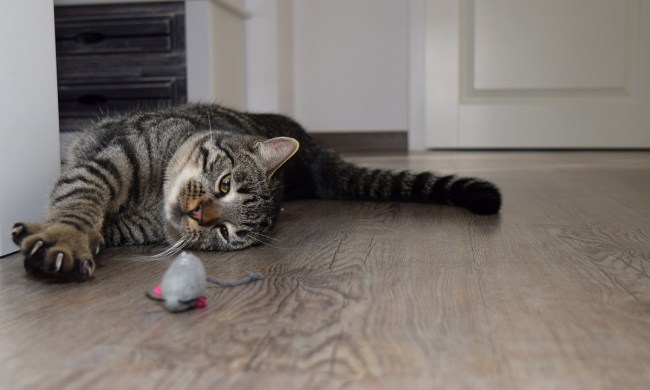Hot, humid summers can be tough for any cat, but when your cat is a Maine coon, dealing with the heat is even more difficult. With thick coats designed for harsh winters, Maine coons aren’t naturally suited to areas that have hot summers. But with the right care, you can help your Maine coon safely weather the summer heat. If you’re aware of your cat’s special needs when it comes to the heat, you’ll be able to keep him healthier, safer, and more comfortable. It’s not difficult to do, but these small changes will make a big difference to your cat’s well-being.

Why heat is dangerous for Maine coons
Maine coons have thick, long coats designed to create warmth. This breed is plenty hardy in harsh, cold climates, and they can survive rain, snow, and pretty extreme cold temperatures. The problem is that they can’t take off that warm winter coat when the summer temperatures arrive, so high heat and humidity can leave them uncomfortable and even bring about serious health issues.
Maine coons keep themselves cool in several ways. They sweat through their paw pads, but their sweating is much more inefficient and ineffective than a human’s sweating, since we can sweat all over our bodies. Your cat will also groom himself, which creates an evaporative effect.
Your Maine coon also will seek out cool areas to lie down when things get hot. Shady areas or tile floors can help keep your cat’s temperature down, and he’ll naturally sleep during the hottest times of the day. You may notice him lying on his back with his feet splayed in the air to help cool off. He’ll also probably drink more water to stay hydrated in the heat.
While these methods can help, your cat may need additional assistance staying comfortable when the temperatures climb.
Top ways to keep your cat cool
To keep your Maine coon cool, try to keep him inside during the hottest times of the day if he’s not an indoor-only cat.
- Run your air conditioning or give him access to the coolest rooms of your house, which are probably your basement and possibly your bathrooms.
- Keep your shades closed to stop the sun from heating up the floor, and run fans if you don’t have an air conditioner.
- Make sure your kitty has continuous access to plenty of cool water. You might want to add some water bowls throughout the home so that water is always nearby, no matter where your cat lies down. You can add an ice cube to the water to keep it cold and enticing.
- Your cat may love sinks and tubs, and these can be ideal places for him to stay cool in the summer. Porcelain tubs and sinks stay particularly cool, so give your cat access to these spots if he prefers them. You might put down a clean, damp towel in the area for your cat to lie on.

Signs your cat is overheating
Even if you take steps to keep your cat cool, it’s important to be able to quickly recognize if he is getting too hot so you can remedy it fast and effectively. Common overheated-cat signs include:
- Lethargy
- Loss of appetite
- Excessive sweating through the paws
You might notice that your cat starts to pant and becomes uncoordinated. If left unchecked, your cat may experience weakness and collapse, and he could even die. Any of these signs are serious, and it’s important to take steps to cool your cat down right away. If you notice your cat is overheating, move him inside at once and put him in front of a fan or air conditioner. Wet down his hair with cool water and call your vet immediately. If your vet isn’t available or it’s after hours, go to your nearest emergency vet clinic.
With proper care and a little extra help, your Maine coon can get through the summer just fine. If temperatures get unusually high, then you may need to take some additional precautions, like confining him to air-conditioned rooms and keeping him indoors until the temperatures drop. As long as you’re aware of the extra challenges your cat may face because of the heat, you can probably help him avoid any situations where his health is at risk. However, always keep an eye out for signs that your cat is overheating, and be prepared to get him the veterinary treatment he might need in that situation.


